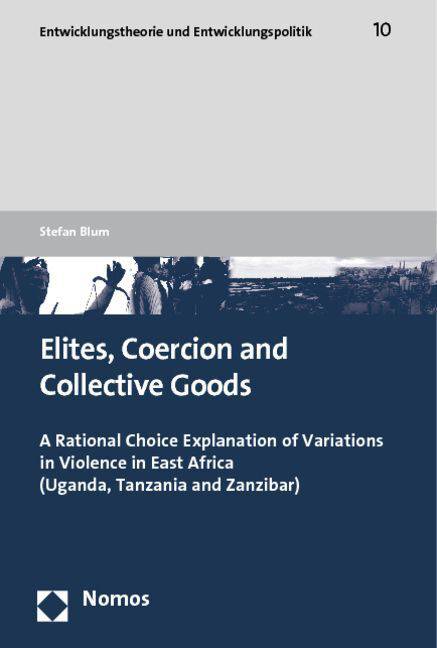
Bedankt voor het vertrouwen het afgelopen jaar! Om jou te bedanken bieden we GRATIS verzending (in België) aan op alles gedurende de hele maand januari.
- Afhalen na 1 uur in een winkel met voorraad
- In januari gratis thuislevering in België
- Ruim aanbod met 7 miljoen producten
Bedankt voor het vertrouwen het afgelopen jaar! Om jou te bedanken bieden we GRATIS verzending (in België) aan op alles gedurende de hele maand januari.
- Afhalen na 1 uur in een winkel met voorraad
- In januari gratis thuislevering in België
- Ruim aanbod met 7 miljoen producten
Zoeken
Elites, Coercion and Collective Goods
A Rational Choice Explanation of Variations in Violence in East Africa (Uganda, Tanzania and Zanzibar)
Stefan Blum
€ 39,45
+ 78 punten
Omschrijving
This study contributes to explain the puzzling variation in violent conflict in post-independence East Africa, specifically between and within Uganda and Tanzania. Although at the time of independence, both countries showed considerable similarities with regard to background conditions such as geography, ethnic composition, income levels and colonial regime, independent Uganda experienced some of the worst violence in Africa leading to several hundred thousand deaths, while Tanzania is commonly described as an island of peace and stability. The authors argue that existing explanations focusing upon the level of democracy on the one hand and of inequalities along identity group lines on the other are unable to explain this variation in violence. Following an application of the statistical Collier/Hoeffler model and underlying economic theory to their observations, they develop a modified rational-choice framework which focuses upon individual rationales to contribute to violence. The main argument is that peace in East Africa resulted when a small group of individuals with a long-term maximization rationale associated with a shared ethnic, racial or religious identity were able to overcome collective action problems and establish a preponderant coercive position. In a productive economy, such a position made it attractive for them to forego present for future appropriation from their subjects and to provide a peaceful order as well as other collective goods. Based upon a theoretical framework the study derives some scenarios for future political developments in Tanzania, Uganda and Zanzibar, and looks at possible implications for policy. Finally, the scope of the present research and its contextualization in the broader scientific and policy debate are discussed.
Specificaties
Betrokkenen
- Auteur(s):
- Uitgeverij:
Inhoud
- Aantal bladzijden:
- 246
- Taal:
- Engels
- Reeks:
- Reeksnummer:
- nr. 10
Eigenschappen
- Productcode (EAN):
- 9783832960148
- Uitvoering:
- Paperback
- Afmetingen:
- 153 mm x 227 mm
- Gewicht:
- 374 g

Alleen bij Standaard Boekhandel
+ 78 punten op je klantenkaart van Standaard Boekhandel
Beoordelingen
We publiceren alleen reviews die voldoen aan de voorwaarden voor reviews. Bekijk onze voorwaarden voor reviews.









